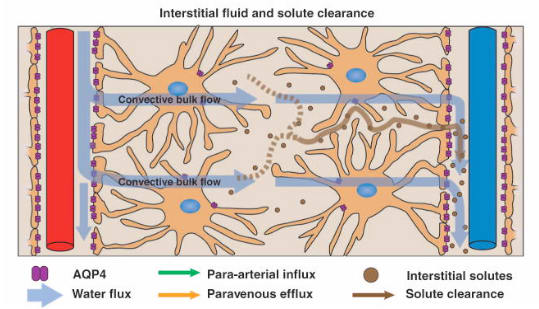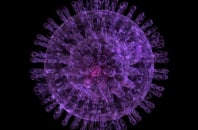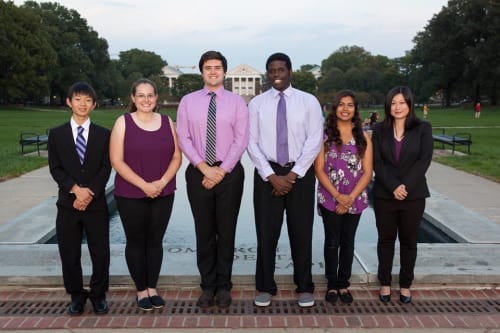Researching Effects of HSV-1 on Waste Clearance in the Brain
The Research Problem
Herpes Simplex Virus-1 (HSV-1), is a prevalent viral agent infecting 50 to 80% of U.S. adults. This double-stranded DNA virus causes oral herpes, however, HSV-1 can travel from its initial oral infection to the Central Nervous System (CNS) where it remains in a dormant state and is occasionally reactivated. Due to its presence in the brain, the impacts of HSV-1 on the brain have been studied and have been found to correlate with a decrease in aquaporin-4 (AQP4) a protein in the astrocytic glial cells that regulates fluid through the brain to form the glymphatic system. This recently discovered waste clearance system in the brain flushes fluid in between blood vessels and eliminates natural waste, such as β-amyloid plaques, in the CNS.

https://www.ncbi.nlm.nih.gov/pmc/articles/PMC3551275/figure/F5/
Malfunctions in the glymphatic system, resulting from disruptions in its AQP4 protein machinery, can cause abnormally high accumulation levels of the β-amyloid protein and subsequently increase chances of developing neurodegenerative diseases, such as Alzheimer's Disease (AD), a devastating disease that affects 5.4 million Americans and has no known cure. The potentially devastating consequences associated with the glymphatic system contribute to the need for its malfunctions to be more indepthly researched.
Our Role
As part of the Gemstone Honors Research Program, our interdisciplinary team is investigating how HSV-1 infection in astrocytic glial cells damages the function of the AQP4 protein specifically through its impact on a critical sub-protein of AQP4. We propose three main aims in our project to characterize the effect HSV-1 has on the AQP4 proteins by looking at whether it decreases the amount of the M23 sub protein of AQP4, what structural changes the viral infection produces, and whether the disruption AQP4 proteins can be modeling using computing technology.

Your Role
As a Gemstone team our main methods of obtaining resources is through grant applications and crowdfunding and as our experimentation progresses, our need for critical lab supplies also grows. Through this LaunchUMD campaign, interested donors such as yourself can support our research endeavors by making a tax-deductible donation. Every contribution significantly increases our chances of getting necessary supplies and obtaining meaningful results. If you can't make a contribution, please spread the word about our cause with your friends and family!
Thank you for your consideration! Every dollar and every share brings us closer to our goal of contributing to the field of neurovirology and better understanding of the glymphatic system.
Social Media
Keep up with our progress by following us on:
Thank You!
Gifts in support of the University of Maryland are accepted and managed by the University of Maryland College Park Foundation, Inc., an affiliated 501(c)(3) organization authorized by the Board of Regents. Contributions to the University of Maryland are tax deductible as allowed by law. Please see your tax adviser for details.
$10
Sub - Protein
With your contribution, we will be able to buy protective material such as gloves, to keep us and our data safe. In return for you gift, we will send you a personalized email expressing our gratitude.
$25
Protein
With your contribution, we will be able to purchase necessary lab equipment such as pipette tips, tubes, and other general supplies. In return for your gift, we will send out a public Social Media shoutout giving our thanks.
$50
Organelle
With your contribution, we will be able to purchase essential media to grow our fragile astrocytic glial cells, a critical component of our research. In return for your gift, we will send you a signed holiday card expressing our thanks in addition to lower level awards.
$100
Glial Cell
With your contribution, we will be able to rent expensive equipment needed to run tests to asses the structure of the studied sub proteins. In return for your gift, we will include your name in a special thanks on all future presentations in addition to all lower level awards.
$250
Glymphatic System
With your contribution, we will be able to buy antibodies to identify AQP4 proteins, and HSV-1 infection. In return, we will send you a personalized appreciation music video starring our very own Folarin Onifade as well as all lower level perks.
$500
Brain
With your generous contribution, we will be able to design and purchase custom antibodies to identify and experiment M23 sub proteins, the main target of our research. In return for your contribution, we will send you a signed copy of our thesis in addition to lower level awards.







